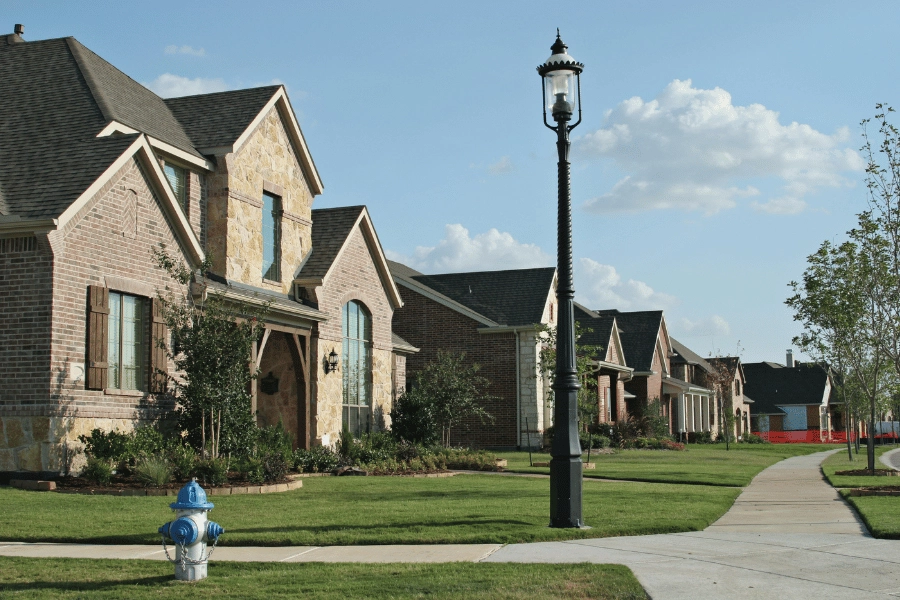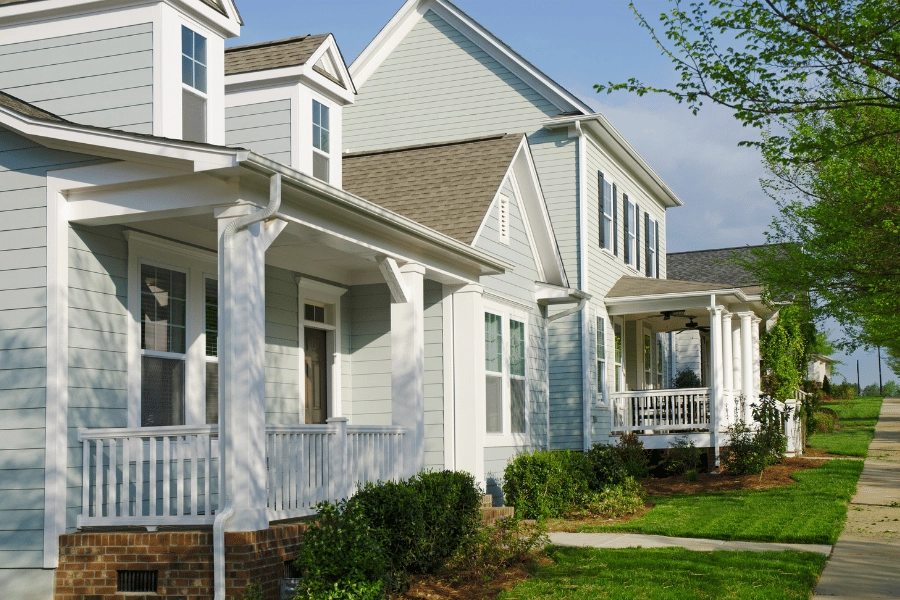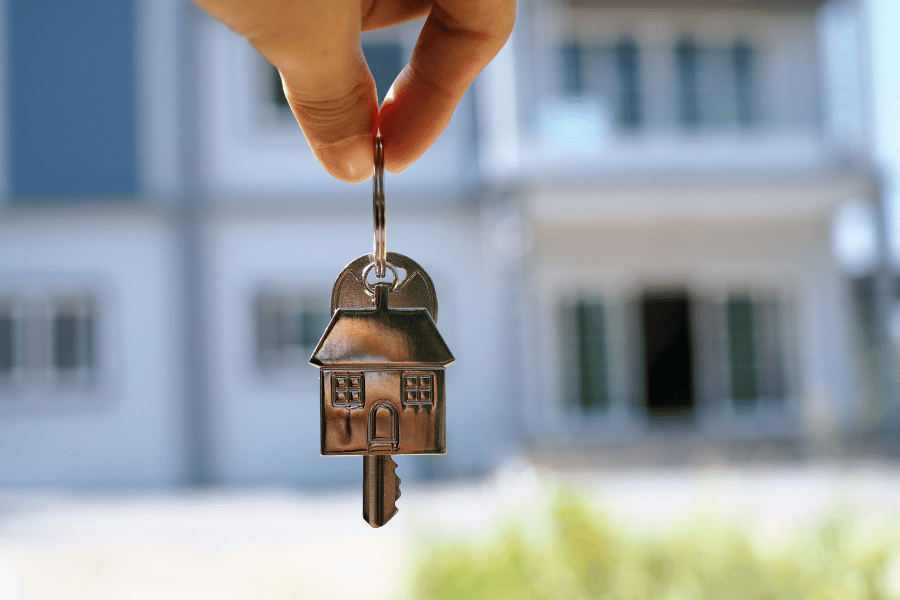What is the Average Length of Homeownership?
Are you curious about how long homeowners typically stay in their houses? Continue reading to discover the average duration of homeownership and the reasons behind it.
Homeownership duration varies from area to area. In some metro areas, people move frequently, while they tend to stay longer in other locations. According to the National Association of Realtors, homeownership duration varies from 6 to 18 years in the 100 largest metro areas. In more than half of these areas, homeowners spend less time holding onto their property than typical homeowners.
Housing supply shortage and low affordability are two main reasons why people stay in their homes longer. Homeowners staying longer in their homes can further reduce the number of homes for sale and will likely be further locked in place because it is hard to sell and buy at the same time.
Like many other aspects of the economy, the housing market is constantly changing, which has a huge impact on the duration of homeownership. Understanding the average length of homeownership is important because it impacts the housing market dynamics, economic trends, and even social factors, so keep reading to learn more.
Here is the average length of homeownership.
1. Average Length of Homeownership in the U.S.
Most American residents live in their homes for less than 15 years. 47% of homeowners reside in their homes for 6-10 years, while 35% live in their homes for 10-15 years.
The homeownership rate in the United States as of the second quarter of 2024 is 65.6%. Over the years, the average length of homeownership has changed and varies, considering factors such as location, age of home, and many more.
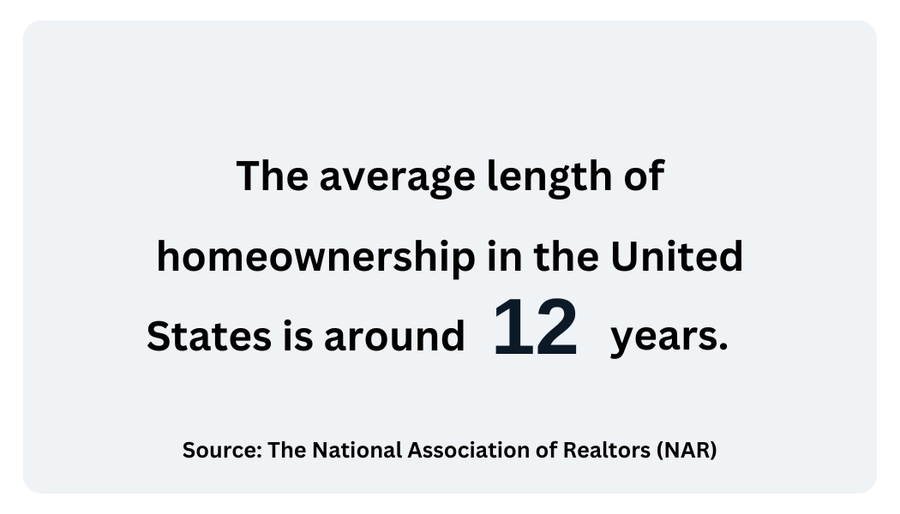
Based on the data, here are some key homeowner stats relating to homeownership.
- The median duration of homeownership in 2024 is now 11.9 years
- Median length of homeownership has increased by 21% since 2012
- Homeowners in the Northeast stay longest in their homes
- Homeownership ensure is the lowest in mountain states
- People own homes 47% longer on average when built before the year 2000
2. Length of Homeownership by State
According to Bankrate, here are the homeownership rates in the U.S. by state, expressed as a percentage of the total population.
| WA: 66.6 | OR: 64.9 | CA: 55.3 |
| MT: 68.3 | IH: 71.3 | NV: 60.3 |
| AZ: 68.1 | AK: 65.1 | WY: 75.3 |
| UT: 71.2 | CO: 67.4 | NM: 71.1 |
| ND: 65.4 | SD: 70.8 | NE: 69 |
| KS: 69 | OK: 68.5 | TX: 63.6 |
| HI: 59.2 | MN: 75.1 | IA: 73.8 |
| MO: 70.6 | AR: 66.8 | LA: 69.6 |
| WI: 70 | IL: 66.7 | TN: 67.3 |
| AL: 73.1 | MI: 74 | IN: 72.6 |
| KY: 71.4 | MS: 72.1 | GA: 64.7 |
| FL: 67.3 | SC: 74.7 | NC: 65.9 |
| VA: 67.4 | WV: 78.6 | OH: 66 |
| PA: 70.7 | NY: 53.9 | ME: 74.9 |
| VM: 72.7 | NH: 74.6 | MA: 61.2 |
| RI: 65.8 | CT: 64.8 | NJ: 64.2 |
| DE: 74.9 | MD: 71.8 |
3. Average Homeownership by Year
Even though the country experienced the highest homeownership rate in 2020, the housing market has not quite recovered fully. Below is a chart of homeownership rates from 2016-2024 to get a better idea of how they have changed over the years.
| Year | Rate (% of population) |
| 2016 | 63.1 |
| 2017 | 63.9 |
| 2018 | 64.5 |
| 2019 | 64.3 |
| 2020 | 68.1 |
| 2021 | 65.5 |
| 2022 | 65.9 |
| 2023 | 66 |
| 2024 | 65.7 |
4. States with Highest/Lowest Homeownership Rates
Below are the states that have the highest homeownership rates ranked by the percentage of their population.
- West Virginia
- Delaware
- Mississippi
- Maine
- Wyoming
- New Hampshire
- Michigan
- Minnesota
- Alabama
- Vermote
Below are the states that have the lowest homeownership rates.
- Georgia
- Rhode Island
- Alaska
- Oregon
- New Jersey
- Massachusetts
- Hawaii
- Nevada
- California
- New York
There are many factors why different states tend to have higher homeownership rates than others. States with lower average incomes often have higher rates, while places that have higher costs of living tend to have lower homeownership rates. There are many other considerations that go into why these numbers vary across different states.
5. Homeownership Rate by Age

The homeownership rate among heads of households under the age of 35 fell to 37.4% in the last quarter, marking the lowest level in four years.
Contributing factors to this decline include high mortgage interest rates, a tight housing supply, and decreased affordability for first-time home buyers. As a result, this age group experienced the most significant drop in homeownership rates.
In comparison to a year ago, homeownership rates decreased for households under 35, those between 35 and 44, and individuals aged 65 and older. Specifically, the rate for those under 35 dropped by 1.1 percentage points to 37.4%. The rate for the 35-44 age group decreased by 0.9 percentage points to 62.2%, while the rate for those over 65 saw a more modest decline of 0.3 percentage points.
On a more positive note, the homeownership rate for individuals aged 45-54 increased to 71.1% in the second quarter of 2024, up from 70.8% a year prior. Additionally, those aged 55-64 also experienced an increase, with their rate rising to 75.8% compared to the previous year.
6. Homeowner Rates by Gender
According to the National Association of Realtors, despite often having lower household incomes, women constitute the second largest group of homeowners, following married couples who have maintained homeownership over a more extended period.
Among home buyers, 59% were married couples, 19% were single women, and only 10% were single men. Although women continue to purchase homes, they frequently face financial challenges.
The gender wage gap means that women typically have smaller down payments compared to men. This results in the need for larger mortgages, ultimately leading to women starting with less equity in their homes than men.
7. Rise in Home Equity
While the appreciation in home prices has made it hard for people to become homeowners, it has caused current homeowners to stay where they are and not make any moves.
Owning a home can make your equity rich by building equity through mortgage payments and appreciation in the value of the house, and it can be a valuable asset. Living in the same home for a long time will help you build this equity and help you pay off those loans.
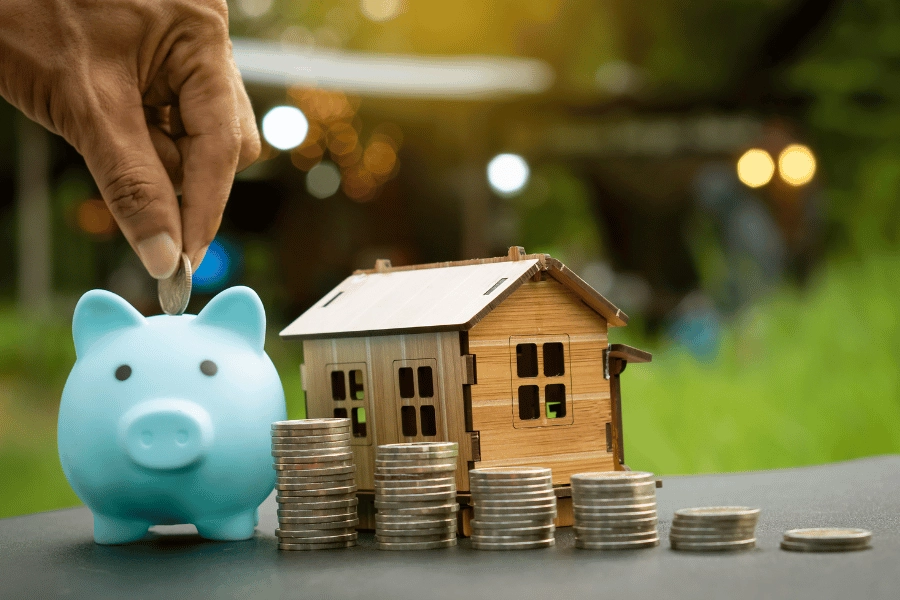
Americans' collective home equity hit record highs in the first quarter of 2024 at nearly $33 trillion. Many homeowners are "equity rich," meaning their mortgage balance is no more than half the home's fair market value, which means they own more than they own on their home.
Overall, homeownership has never been more valuable in the United States. Every state has benefited in its own way, but Vermont has had the highest percentage of mortgage homes considered to be equity-rich, while Louisiana has had the lowest percentage.
8. Are Homeowners Moving Out Faster?
Based on all the data over previous years, it has shown that people are moving out quickly. The median years of residence for homeowners have decreased since 2014, but in an overview, the figure shows little movement.
Homeowners are beginning to move more often than before, and that is based on many factors, such as economic uncertainty, housing values, and the rise of mortgage rates.
Once home prices rebounded, the median years of residency declined, a pattern that has been evident for years. Homeowners may be taking advantage of higher demand and lower supply in the housing market to sell their homes and move on to another house.
9. Does Homeowner Tenure Affect Finances?
The number of years you stay in a house determines how much you will pay back on the mortgage you took out when you bought it. A longer stay in a house gives you the opportunity to pay back a larger portion of the money you borrowed. Since most mortgages are scheduled to be repaid over a 30-year term, you can easily estimate how much equity you will build by the time you move out.
It is important to remember the fixed cost of buying and moving into a house. Mortgage closing costs, property taxes, insurance, agent commissions, and moving expenses all contribute to the upfront cost of a new home, so if you move out too early, the amount you spend getting that property may outweigh the equity or appreciation you have collected to staying in a home for longer may help you financially in the long run.
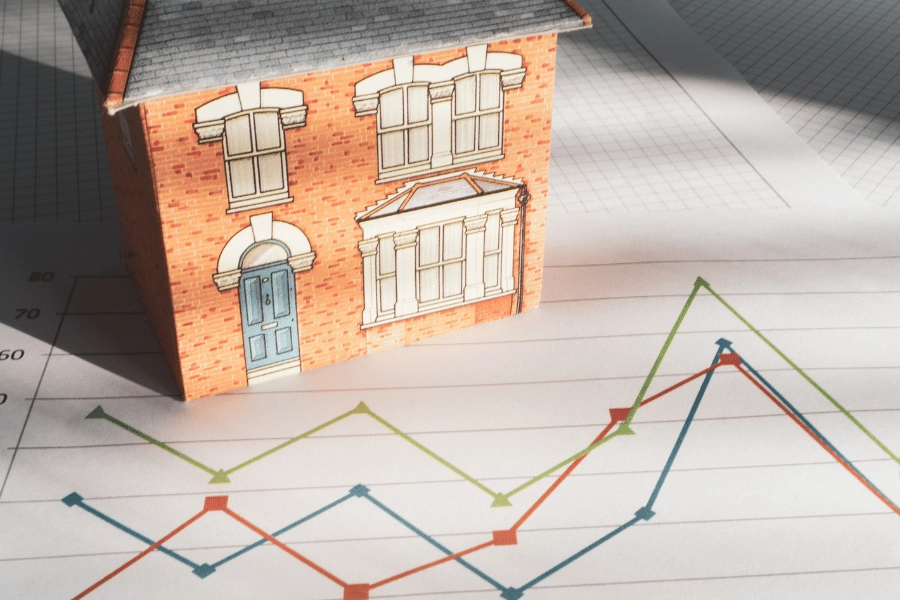
10. How is the Current Market Affecting Homeownership?
After the pandemic in 2020, it was a perfect time for people to buy homes, especially with the record low mortgage rates and the rise in remote work. Many people used that as the time to relocate and buy a new home.
Now, the booming housing market has brought a rise in home prices, high mortgage rates, and limited inventory, so buying and selling has slowed down, increasing the average length of homeownership. One out of seven people has no intentions of buying a new home anytime soon, while 51% of people have reported they are happy where they are living.
Methodology
We created this guide using information from various sources and our own data on the average length of homeownership.
- Housing Vacancies and Homeownership Survey (HVS)
- National Association of Home Builders
- National Association of Realtors
We used the following sources to gather most of our information on homeownership average length.
FAQS
What is the average length of homeownership in the United States?
The average U.S. homeowner tends to stay in their home for about 11.9 years, but this varies depending on location, age, and home type.
What percentage of 30-year-olds own a home?
The homeownership rate among young adults, those under 35, is about 39%, which has declined over the past decade. With the high prices and rates, younger people tend to purchase a home more easily.
Why is homeownership declining?
Based on the Census Bureau's Housing Vacancy Survey reported that the U.S. homeownership rate has declined because of the tight housing supply and elevated mortgage interest rates.
How long should you own a house to make it worth it?
Real estate agents suggest that you stay in a house for at least 5 years to recoup the cost and make a profit before you think about selling. Before you put your house on the market, consider all the fees and payments and compare them to the amount of equity you have made to decide if it is worth it.
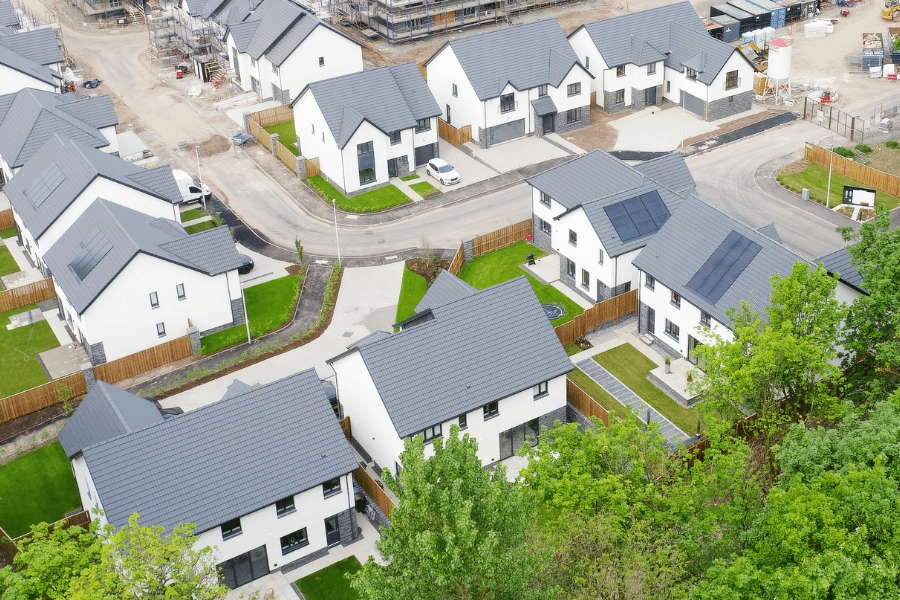
What is the Average Length of Homeownership? - The Bottom Line
Homeowners are staying in one place longer than ever as high mortgage rates continue to discourage people from taking out new loans to move. There are many other reasons why people are not moving, and as of now, we do not see a large change coming soon.
Homeownership tenure has increased over time, with people now owning a home that they purchased for 12 years. The length of homeownership can vary depending on the region and the age of the home. However, with new fast-growing areas coming about, lower ownership tenures are expected.
With the economy and housing market changing constantly, there is no say in whether homeownership rates will change. Everyone has different situations, and if you are considering moving into a new home, contact a trustworthy real estate agent to help ease the process.
If you are considering moving or selling, contact us or visit our website. Our team at Raleigh Realty is here to help you with any home buying or selling needs.
